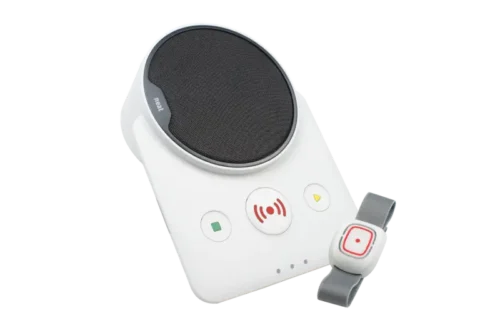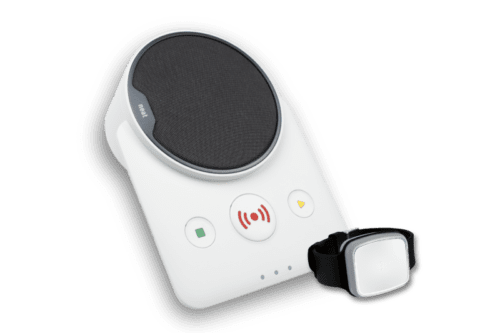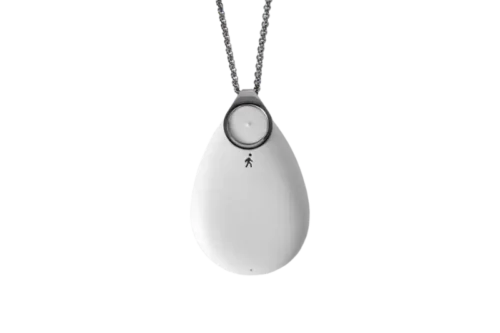Guide to Pendant Alarms
Pendant alarms are designed to keep you safe at home and give peace of mind to you and your loved ones. If you suddenly start to feel unwell or have an accident and you’re wearing a pendant alarm, you can get immediate assistance at the push of a button.
Keep reading to learn more about pendant alarms from one of the UK’s leading monitored pendant alarm service providers.
Jump to the section you want to read first:
What is a pendant alarm?

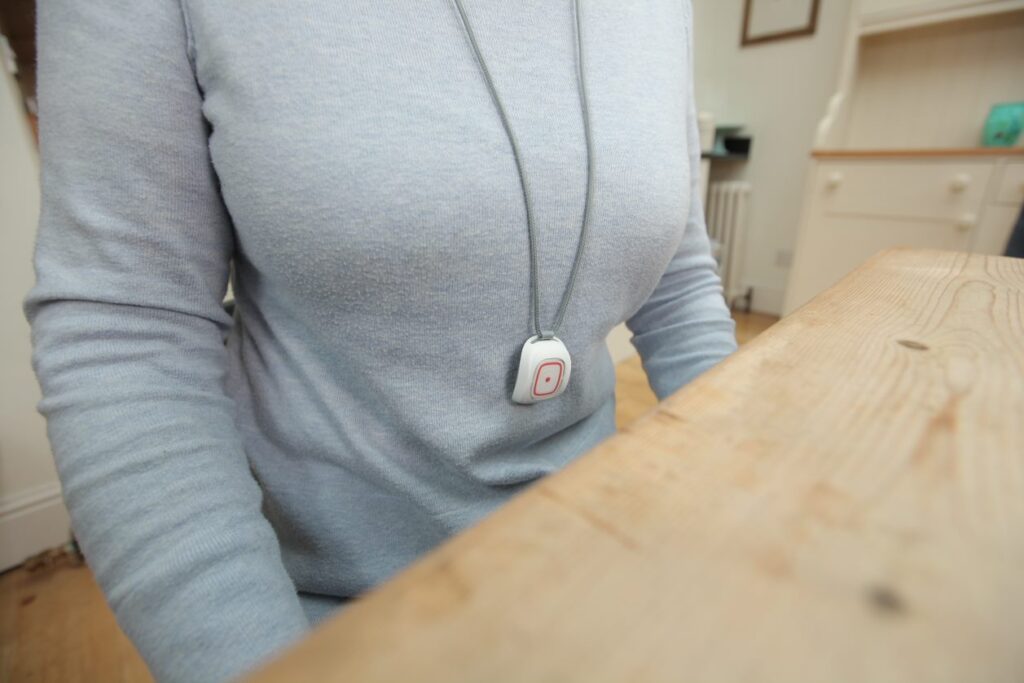
What does a pendant alarm do?
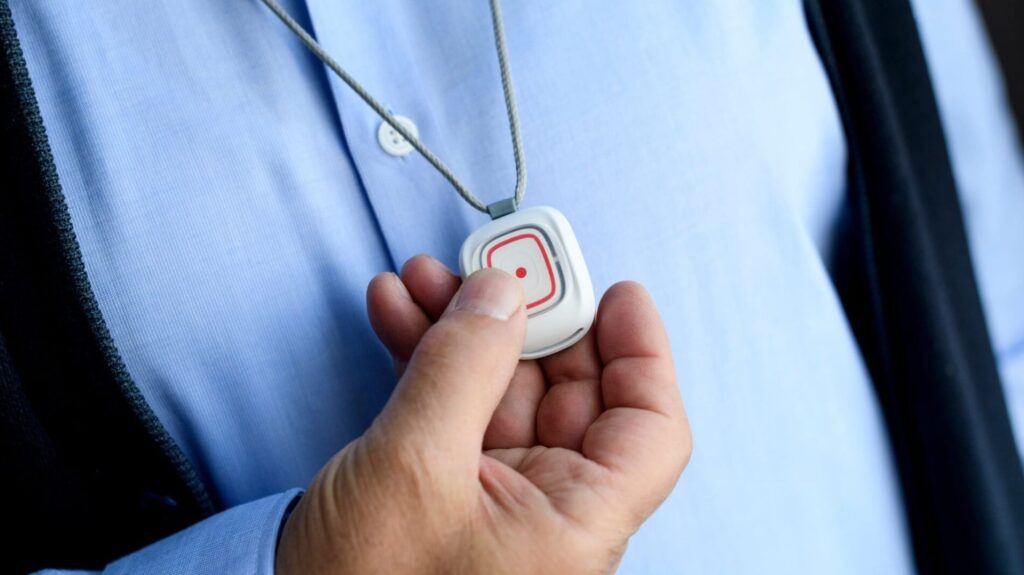
Who do pendant alarms call for help?
How does a pendant alarm work?

Do pendant alarms detect falls?

Who are pendant alarms for?


What does a pendant alarm look like?
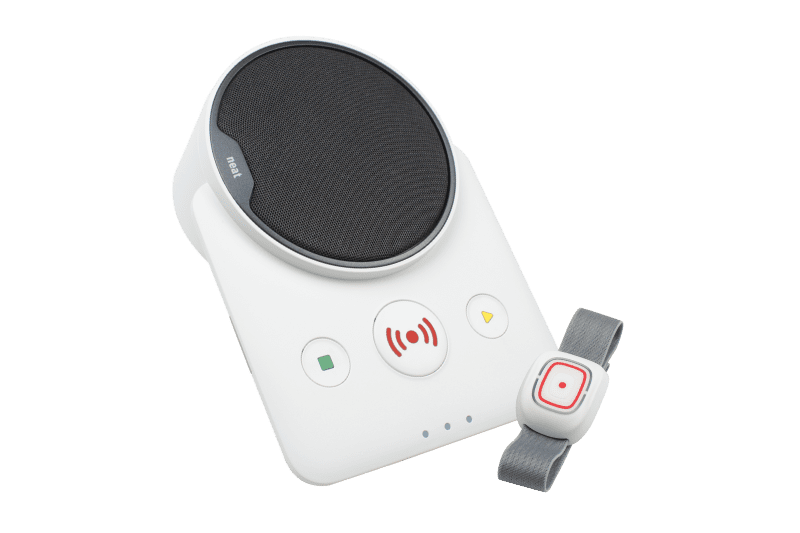
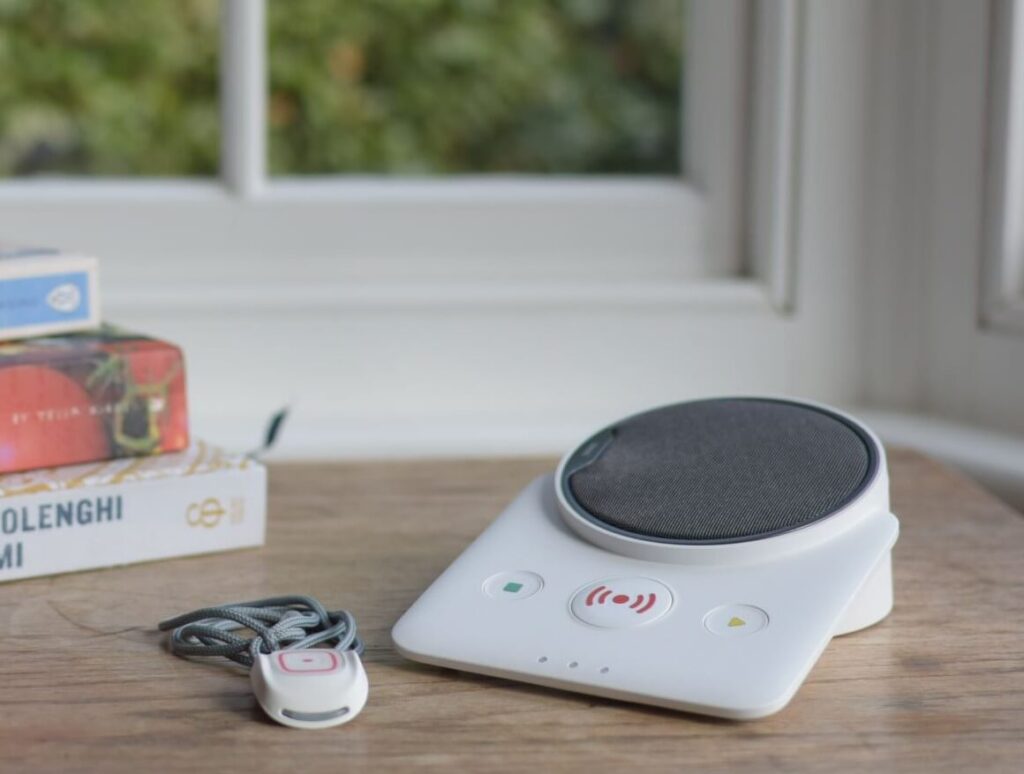
How many people can use a pendant alarm?

What's the difference between pendant alarms and lifeline alarms, elderly alarms etc?

Telecare24's digital pendant alarm is unaffected by the digital switchover. No phone line required, as the device use mobile phone technology to function.
Choose a digital plan from Telecare24 now and save yourself the hassle of upgrading later.
More FAQs
More answers to some of the commonly asked questions about pendant alarms.
Pendant alarms, also known as personal alarms, provide reassurance and a sense of safety for people who live alone.
To use a pendant alarm, you simply press a button to summon help in an emergency. Traditional pendant alarms will send a signal to a base unit which then places a call for help to a monitoring team.
Modern pendant alarms that feature GPS or mobile-phone technology will also double as the base unit – saving the need for a separate device. These are ideal for elderly people who still enjoy going out and about.
Pendant alarms are typically worn around the neck or on the wrist*, and they can be used to summon help in an emergency. Most systems have a base unit that is connected to the phone line. When the alarm is triggered, it sends a signal to the base unit, which then alerts the Monitoring Center.
At Telecare24, we want to ensure you are as safe as possible, so the wearable panic button that you get with our fall pendant alarm plan is wrist-worn only.
In an emergency, a wrist-worn panic button that has built-in fall detection is more accurate and accessible than a neck-worn button.
The Monitoring Center will then dispatch emergency personnel to the home. Pendant alarms provide peace of mind for both the user and their loved ones, knowing that help is just a push of a button away.
Pendant alarms are ideal if you spend long amounts of time at home alone and you want the peace of mind of being able to contact someone when you need help.
These life-saving devices are popular among elderly people, but can be used by anyone. Pendant alarms also grant peace of mind to family members and caregivers, who can rest assured knowing that their loved ones can get help in an emergency.
Pendant alarms are typically worn around the wrist or on a lanyard, around the neck. Some pendant alarms can also be clipped to a belt or shirt collar.
While it is perfectly normal to wear a pendant alarm while you are in bed, most people like to take them off overnight. The important thing to remember is that they should be kept close by at all times, in case of an emergency.
Buying additional pendant alarms for other people who live at the same address is a great idea, especially in larger homes where it may be to difficult to shout for help and be easily heard.
A credible pendant alarm company will allow you to order extra pendant alarms when you sign up. The best ones will not charge you additional servicing fees or setup costs, but they may charge you for the extra equipment.
If there is somebody else at home who would benefit from a pendant alarm then you can also order an extra alarm for them.
Having an extra fall alarm for somebody else is a great idea for couples where either person may suffer a fall.
The best fall alarm providers will let you add more than one user when you sign up, and will only charge you for the additional equipment (and won’t charge you an additional setup fee).
Whether you can get a pendant alarm wet depends on where you bought your pendant alarm from. Good pendant alarms are certified as waterproof, meaning they are fine to get wet in the bath or shower.
If a pendant alarm has what is known as an ‘IP67’ rating, then it has been tested and officially certified as waterproof. An IP67 classification means it is waterproof up to 1 metre deep and for no longer than 30 minutes.
